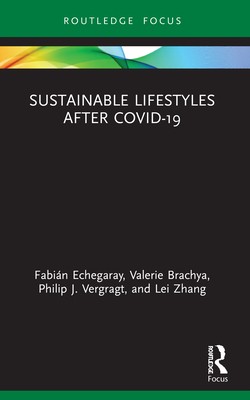
- We will send in 10–14 business days.
- Author: Fabián Echegaray
- Publisher: Routledge
- ISBN-10: 0367754118
- ISBN-13: 9780367754112
- Format: 14 x 21.6 x 0.8 cm, minkšti viršeliai
- Language: English
- SAVE -10% with code: EXTRA
Reviews
Description
This book takes an in-depth look at Covid-19-generated societal trends and develops scenarios for possible future directions of urban lifestyles.
Drawing on examples from Brazil, China, and Israel, and with a particular focus on cities, this book explores the short and long-term changes in individual consumers and citizen behavior as a result of the Covid-19 pandemic. On the basis of extensive market and opinion research data, aggregate data, observational evidence, and news reports, the authors provide a detailed account of the transformations that have occurred as a result of a triple shock of public health emergency, economic shutdown, and social isolation. They also examine which of these behavioral changes are likely to become permanent and consider whether this may ultimately promote or restrain sustainable lifestyle choices.
Innovative and timely, this book will be of great interest to students, scholars, and professionals researching and working in the areas of sustainable consumption, urban and land use planning, and public health.
EXTRA 10 % discount with code: EXTRA
The promotion ends in 22d.15:05:44
The discount code is valid when purchasing from 10 €. Discounts do not stack.
- Author: Fabián Echegaray
- Publisher: Routledge
- ISBN-10: 0367754118
- ISBN-13: 9780367754112
- Format: 14 x 21.6 x 0.8 cm, minkšti viršeliai
- Language: English English
This book takes an in-depth look at Covid-19-generated societal trends and develops scenarios for possible future directions of urban lifestyles.
Drawing on examples from Brazil, China, and Israel, and with a particular focus on cities, this book explores the short and long-term changes in individual consumers and citizen behavior as a result of the Covid-19 pandemic. On the basis of extensive market and opinion research data, aggregate data, observational evidence, and news reports, the authors provide a detailed account of the transformations that have occurred as a result of a triple shock of public health emergency, economic shutdown, and social isolation. They also examine which of these behavioral changes are likely to become permanent and consider whether this may ultimately promote or restrain sustainable lifestyle choices.
Innovative and timely, this book will be of great interest to students, scholars, and professionals researching and working in the areas of sustainable consumption, urban and land use planning, and public health.


Reviews